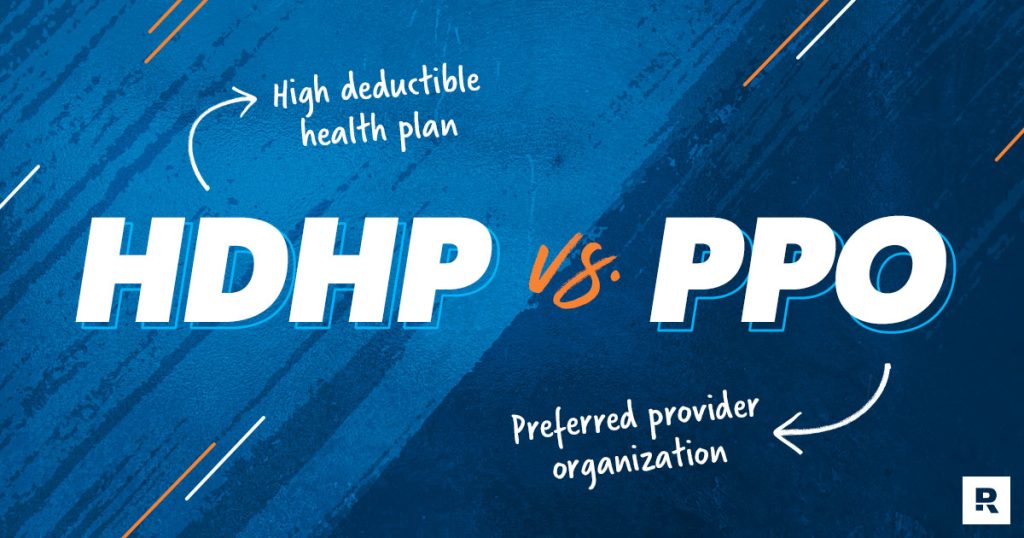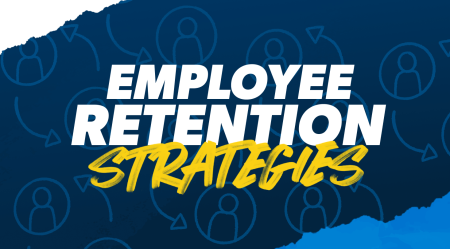Ever wondered why we need so many acronyms to talk about health plans? There are a lot of letters! But look at it this way. It’s way easier to say PPO than preferred provider organization. Or HDHP instead of high deductible health plan. Shortening the names is a good start! But to know which one is right for you, what you really need is an explainer on HDHP vs. PPO.
What Is an HDHP?
A high deductible health plan has a higher deductible than other plans—which may explain the name. But the higher deductible is just one side of the coin. An HDHP also features lower premiums. And those savings often make up for a higher out-of-pocket maximum.
HDHP Pros and Cons
HDHPs are becoming a pretty popular approach to health care. Among employers offering health benefits, 22% now include an HDHP option.1 If you look at the advantages, it’s easy to understand why:
- Lower premiums: With health care costs rising, it always feels good to punch that line item in the nose!
- Tax benefit: When you have an HDHP, you’re eligible to open a Health Savings Account (HSA). An HSA is a triple tax-free miracle that allows you to make tax-free contributions, accumulate tax-free growth, and use the money in your HSA tax-free to pay medical expenses.
- Employer match: If you have an HDHP as an employee benefit, you might be eligible for an employer match in your HSA. We usually recommend picking up any free money when it comes your way. (But if you’re still paying off debt, we recommend holding off on contributing to an HSA until that’s all knocked out. This article covers the best timing for when to get an HSA, wherever you are on your financial journey.)
- Broader network of providers: You might get a longer list of providers with an HDHP. And that would come in handy if you ever need health care while traveling.
Of course, this kind of plan does have a higher deductible. That means you’ll have higher out-of-pocket costs when you need medical care. But like any health plan, you’ll only have to pay up to the HDHP’s defined out-of-pocket maximum. Depending on your circumstances, those higher costs could be more than offset by the money you save on premiums and the benefits of saving with an HSA.
Once you meet your deductible for the year, an HDHP will typically cover most or all of your remaining medical expenses. But before jumping into one, think about your general health. Do you have a chronic condition or frequent doctor visits? If so, an HDHP might not be your best option.
On the other hand, do you sometimes go years without hitting your annual deductible? If you’re relatively young and healthy and have the option of saving for medical expenses in an HSA, an HDHP could be a great fit for you.
What Is PPO Insurance?
The PPO does not mean the penny-pincher option—but that’s not to say you can’t use it to save money. So what does PPO stand for? It means preferred provider organization plan, and this plan type comes with the advantage of a lower deductible. But you’ll also pay more in monthly premiums. PPOs are also sometimes called traditional plans, because they’ve been around longer than HDHPs have. To see if this is the right plan for you, let’s talk about the pros and cons.
PPO Pros and Cons
First, the upside:
- Lower deductible: We all want to save money where we can. And having a lower deductible means a PPO kicks in with help on medical expenses sooner, rather than later.
- Lower out-of-pocket maximum: The PPO typically has a lower maximum out-of-pocket cost than an HDHP. Although this feature can be a big help, it can also be a wash financially by the time you pay all of your premiums for the year.
The main downside of a PPO is that you’ll pay higher monthly premiums. And then there’s the “preferred provider” wrinkle. Both PPOs and HDHPs have a network of providers you can work with to get the best rates. But in a PPO, the provider list is generally smaller than it is with an HDHP. To get the best rate on your care, you have to stick to that list.
Going out of network to get skin treatment from your best friend Larry’s favorite dermatologist might seem like an obvious way to help your complexion. But it could also leave egg on your face when you’re on the hook for a high out-of-network bill.
PPO Pros and Cons
|
PPO Pros |
PPO Cons |
|
Lower deductible |
Higher premiums |
|
Lower out-of-pocket maximum |
Smaller provider network |
Cost Difference Between HDHPs and PPOs
Depending on the specific plans available to you, the question of cost could shake out in three ways:
- You could save more with a PPO.
- You could save more with an HDHP.
- In some years or situations, the two could cost you about the same.
To understand how HDHP and PPO plans compare in general, let’s look at some examples.
Say you’re young and healthy. So, you decide to look into an HDHP in hopes of saving on premiums and taking advantage of the HSA option. The $250 monthly premium sounds like a great deal! Just be sure to pay attention to the $3,000 deductible you’ll have to meet before your plan starts paying any of your medical costs.
Or say you have an ongoing medical issue, or you anticipate making a lot of visits to the doctor’s office in the next year. Pricing a PPO, you find that your monthly premium will be $500. Yikes! That’s double the HDHP amount! But on closer inspection, you notice your deductible will only be $1,200. So the PPO will start covering some of your medical expenses much earlier in the year than an HDHP might.
So far it looks like an HDHP is a little bit better deal if you’re relatively healthy, and a PPO is a better fit if you go to the doctor a lot. But even at those prices, the question of which one fits better for you is still up in the air. That’s because there’s no way to truly know what will happen in any given year. The best approach? Compare what’s offered in each kind of plan and run some numbers based on what you’re used to spending for medical needs.
Here’s a chart to put the numbers in perspective:
|
|
HDHP |
PPO |
|
Annual Premium |
$3,000 |
$6,000 |
|
Deductible |
$3,000 |
$1,200 |
|
Total Cost Before Coinsurance |
$6,000 |
$7,200 |
How Does an HSA Fit In?
As you can see, it’s possible for the plans to wind up pretty close to each other in cost. But even if the numbers are a wash, there’s an X factor with HDHPs you can’t ignore. You have to consider the unique tax advantages you’ll have if you choose an HDHP and then enroll in an HSA as a way to help cover medical expenses.
HSA vs. PPO
The question of which plan to choose is often framed as HDHP vs. PPO—but it could be more helpful to talk about it in terms of HSA vs. PPO! After all, people don’t go for an HDHP because of their undying love for high deductibles. They do it for two main reasons:
- Because the lower premiums could result in lower annual medical costs out of pocket
- Because they can save up for medical costs in a completely tax-sheltered investment that’s super convenient and a supplementary retirement fund
How an HDHP Plan Works With an HSA
Basically, when you combine an HSA with an HDHP, you’re adding the power of investment to your efforts to cover medical expenses. Let’s count the ways:
- The money you put into an HSA goes in tax-free.
- If you choose, your HSA funds can be invested. Any growth on the investments in your HSA is also tax-free.
- Any money you withdraw from your HSA is also untaxed so long as you use the money to pay for qualified medical expenses.
- Unlike with flexible spending accounts, the money in an HSA doesn’t expire annually—it rolls over every year for as long as you have the account. Meanwhile, your contributions and investment growth could lead to some impressive savings!
- An HSA often includes an employer match on your contributions, making them similar to a 401(k) for medical expenses.
- Even if you opened the account as an employee benefit, you won’t lose access to it if you leave your job.
- If you still have funds in your HSA when you turn 65, the laws around your HSA will change. From there, that money is no longer restricted to medical expenses—you’ll be able to use it as a supplement to retirement income! (Just be aware that unless you’re using them for qualified medical expenses, any funds you withdraw will be taxed.)
Are you starting to see why we think more about HSA vs. PPO and less about HDHP vs. PPO? It’s because an HSA gives you so many advantages.
A PPO is a great option for many people, especially for larger families or those who have high annual medical expenses on a regular basis. But with an HSA, many of those costs can be planned for or offset by the opportunity to take an employer match, invest, and roll funds over.
HDHP vs. PPO: Which Is Right for You?
We can give you all the info, but choosing the right health plan will always depend on your circumstances. With all the different reasons one or the other could be right for you, it wouldn’t be a surprise if it felt overwhelming. But don’t worry—you got this! And you don’t have to figure it out alone. There are insurance experts who know the industry and can guide you through the process. Our RamseyTrusted health insurance partner Health Trust Financial can put you in touch with an independent agent who can help you figure out which plan is best for your situation.
Interested in learning more about health insurance?
Sign up to receive helpful guidance and tools.
Read the full article here












